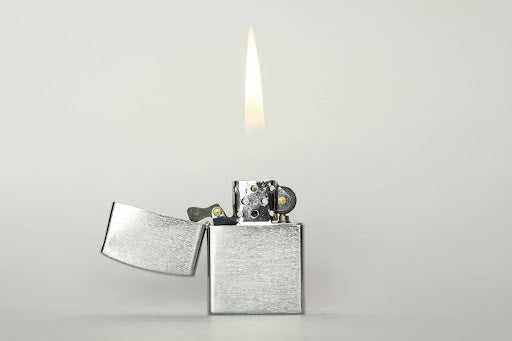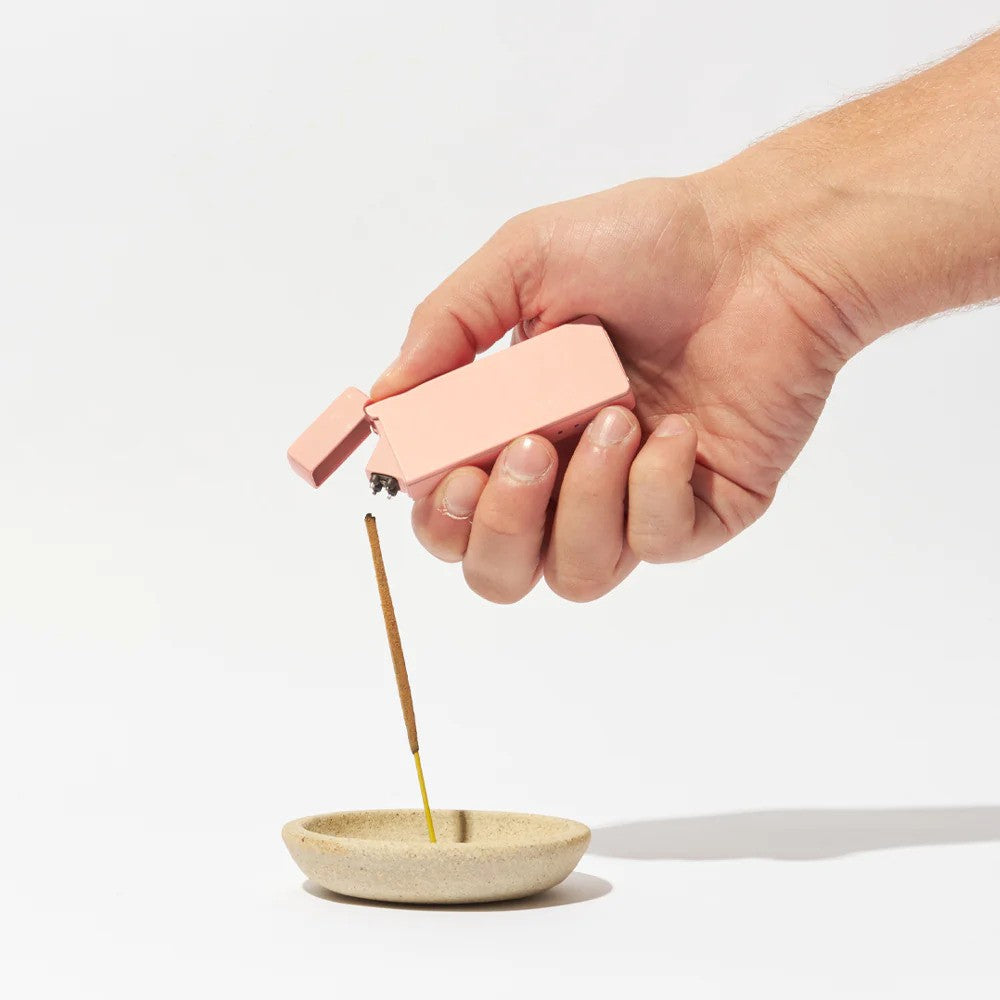Have you ever stopped to think about the differences between a regular lighter and an electric one? When it comes to which type of lighter is more efficient, reliable, and overall better for your needs, it's important to understand each option's advantages.
Regular lighters are easy to use and widely available, while electric lighters are rechargeable and often offer added features such as increased wind resistance and built-in flashlights.
What are Regular Lighters?

Regular lighters, also known as disposable lighters or flint-wheel lighters, use a fuel source to produce a flame. They come in a variety of sizes, colors, and styles. Regular lighters, especially disposable ones, are also inexpensive. However, with a disposable lighter, once they are out of fuel, you’ll need to toss them away and buy another. Other regular lighters require regular maintenance, such as the replacement of flint wheels or refilling the lighter with fuel such as butane.
Open Flame
Regular lighters produce a large and hot open flame that can light all kinds of flammable materials. This open flame typically cannot withstand high winds and can be dangerous if not handled properly.
Shelf Life
Regular (disposable) lighters have a long shelf life and can be stored safely away until they are needed.
Widely Available
Finally, regular lighters are widely available in a variety of stores. This means that they can be found almost anywhere, including grocery and convenience stores.
What are Electric Lighters?
If you’re looking for a convenient and reliable way to light up on your next camping trip or light the candles on a birthday cake, an electric lighter is perfect. Not only are they easy to use, but they also offer some great advantages over regular lighters. Here are just some of the benefits that come with owning an electric lighter:
• No Wind-Blown Out Flames:
Unlike regular lighters, the flame (or arc) on electric lighters won’t get blown out in the wind. This makes them a great choice for windy days or locations with lots of drafts.
• Safe and Easy to Use:
Electric lighters are extremely easy to operate, and since they don’t involve open flames, there’s little risk of getting burned or causing an accidental fire.
• Longer Lasting:
Electric lighters are rechargeable, meaning you don’t have to worry about running out of fuel. This makes them ideal for long trips like backpacking or camping, where refueling isn’t convenient.
• Environmentally Friendly:
Electric lighters don’t give off smoke or soot like regular lighters, making them a much more eco-friendly option.
These advantages make electric lighters the ideal choice for anyone who needs a reliable and safe way to light up for any reason. Whether you’re lighting fragrant candles at home, camping, fishing, hunting, or just having a backyard bonfire, electric lighters are the way to go. So grab one today and light up your next adventure with ease!
Overall Considerations
ALT IMG TXT: Electric Lighter Vs Regular
Both electric lighters and regular lighters are small and compact. Most often, you can put them in your pocket or a purse. Some electric lighters, like the candle lighter, are longer but more slender. This design lets you reach into tight or difficult spaces, such as small candle jars.
Lifespan
The product’s lifespan is an important factor to consider as well. Electric lighters tend to have a longer lifespan than regular lighters due to their rechargeable battery packs or tesla coils. Regular lighters will run out of fuel and need replacing or refilling frequently.
Convenience
The convenience of the product is also something that needs to be considered. Electric lighters offer more convenience as they are easier to use and can be charged fairly quickly (in about 1.5 hours). Refilling regular lighters with fuel can be messy and a hassle.
Type of Electric Lighters
Lighters from the USB Lighter Company are a great option when determining the best type of electric or rechargeable lighter for personal use. Its lighters have an innovative design, including various bold colors and patterns. One choice is the pocket lighter, which is very compact but still powerful enough to provide a reliable flame with just a single click. The other options include a candle lighter and the Motli Light, which is versatile and suitable for various lighting tasks, such as lighting gas appliances or a barbecue grill.
Each of these lighters has its own advantages and benefits. Consider how you plan to use it before making your final decision.
Storage Tips
The electric lighter is a great convenience for lighting various items such as candles, grills, and campfires. However, it's important to remember that they must be stored properly to ensure safe operation. Here are some storage tips for electric lighters:
- Never leave an electric lighter uncovered or exposed to extreme temperatures.
- When not in use, store your electric lighter in a cool, dry place.
- Make sure to keep the lighter away from children and pets, as they could get harmed.
- Charge the lighter fully before use and periodically check for any signs of corrosion.
Following these tips will keep your lighter functioning properly so that it is ready to use at any time.
Final Words
Electric lighters have many advantages over regular lighters, including ease of use and durability. For this reason, electric lighters have become increasingly popular in recent years. They offer a convenient, safer, and more reliable alternative to traditional lighters. While the initial cost of an electric lighter may be higher than that of a regular one, it is well worth the investment. You can expect your electric lighter to last you decades or even a lifetime, and you will no longer have to buy fuel to keep it working. Electric lighters, like Motli Light by the USB Lighter Company, are particularly useful for those who frequently use lighters outdoors, especially in windy or wet weather. Pocket lighters like the Pocket Lighter-Season 2 produce a double arc (flameless heat) for better and faster lighting.





